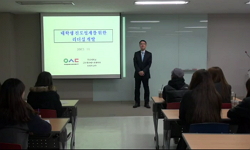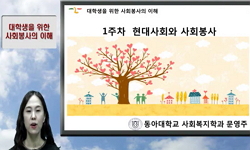The purpose of this study is to investigate the relationship between learning stress and learning satisfaction, and to analysis the mediation effect of coping style and the moderator effect of psychological resilience in the relationship between the t...
http://chineseinput.net/에서 pinyin(병음)방식으로 중국어를 변환할 수 있습니다.
변환된 중국어를 복사하여 사용하시면 됩니다.
- 中文 을 입력하시려면 zhongwen을 입력하시고 space를누르시면됩니다.
- 北京 을 입력하시려면 beijing을 입력하시고 space를 누르시면 됩니다.
Study on the Mediating Effects of Psychological Resilience and Coping Style in the Relationship between Learning Stress and Learning Satisfaction of University Students Majoring in Geographic Information Science in China = 중국의 지리정보과학 전공 대학생의 학습 스트레스와 학습 만족도 간의 관계에서 대처 스타일과 심리적 회복탄력성의 매개효과
한글로보기부가정보
다국어 초록 (Multilingual Abstract)
The purpose of this study is to investigate the relationship between learning stress and learning satisfaction, and to analysis the mediation effect of coping style and the moderator effect of psychological resilience in the relationship between the two variables for university students majoring in geographic information science, including the significant differences between demographic groups in learning stress, coping style, psychological resilience and learning satisfaction, the correlation among the four variables, the mediation effect of psychological resilience and coping style between learning stress and learning satisfaction. On this basis, suggestions to improve the learning satisfaction of university students majoring in geographic information science will be put forward. This study selected university students majoring in geographic information science in six Chinese universities as the research subjects, and used non-probability sampling method to collect questionnaire data. These six universities are representative in the field of geographic information science. Selecting students from multiple universities helps ensure a broad range of disciplines. The research aims to consider individual differences among students to gain a more comprehensive understanding of different student groups. Differences and commonalities in academic stress and satisfaction. Collected data through the "University Students Learning Stress Questionnaire", "Simple Coping Style Questionnaire", "Adolescent Psychological Resilience Scale", "University Students Learning Satisfaction Questionnaire". This study used SPSS 25.0 and Amos 24.0 to conduct statistical analysis of the effective data, the research results are as follows: First, the learning stress and learning satisfaction levels of university students majoring in geographic information science are moderately high while in a reasonable range. This shows that the level of learning stress and learning satisfaction of university students majoring in geographic information science is basically within a reasonable range, and the greater the learning stress, the lower the level of learning satisfaction. Second, in terms of demographic variables. Sociological demographic variables investigated the scores of learning stress, psychological resilience, coping style and learning satisfaction. In terms of gender differences, compared with female students, the learning stress of male students is significantly lower than that of female students; The psychological resilience of men is significantly higher than that of women; The coping style of men is significantly lower than that of women; Men's learning satisfaction is significantly lower than women's learning satisfaction. Third, coping style (positive coping style and negative coping style) has a partial mediation effect between learning stress and learning satisfaction. Psychological resiliencehas a partial mediation effect between learning stress and learning satisfaction. Fourth, psychological resilience and positive coping style act as a multiplemediator between learning stress and learning satisfaction. Psychological resilience and negative coping style act as a multiple mediator between learning stress and learning satisfaction. Recommendations were made to improve learning satisfaction of university students majoring in geographic information science from three aspects. First of all, pay attention to the learning stress of university students and promote their mental health. Secondly, cultivate positive coping style of university students and reduce negative coping style of university students. Finally, improve psychological resilience and promote self-growth. This study can effectively improve the learning satisfaction of of university students majoring in geographic information science, and thus improve the competitiveness of university students. The study can also provide a new perspective for related workers to intervene in the research of learning stress, coping style, psychological resilience, and learning satisfaction for university students. Key words: University students, Geographic information science, Learning stress, Coping style, Psychological resilience, Learning satisfaction
목차 (Table of Contents)
- Abstract · Ⅴ
- Ⅰ. Introduction · 1
- 1. Research Necessity 1
- 2. Research Purpose 6
- 3. Research Questions 7
- Abstract · Ⅴ
- Ⅰ. Introduction · 1
- 1. Research Necessity 1
- 2. Research Purpose 6
- 3. Research Questions 7
- 4. Definition of Terms · 8
- 1) Learning Stress 8
- 2) Coping Style 8
- 3) Psychological Resilience 9
- 4) Learning Satisfaction 9
- 5) Geographic Information Science · 10
- Ⅱ. Theoretical Background · 11
- 1. University Student Majoring in Geographic Information Science 11
- 2. Definition of Core Concepts 12
- 1) Definition of Learning Stress 12
- 2) Definition of Coping Style 16
- 3) Definition of Psychological Resilience · 19
- 4) Definition of Learning Satisfaction · 24
- 3. Previous Research 26
- 1) Previous Research on Learning Stress 26
- 2) Previous Research of Coping Style 29
- 3) Previous Research of Psychological Resilience 32
- 4) Previous Research on Learning Satisfaction 35
- 5) Relationship among Learning Stress, Coping Style, Psychological
- Resilience and Learning Satisfaction · 37
- Ⅲ. Research Method 46
- 1. Research Subjects 46
- 2. Measurement Tool Settings 48
- 1) Questionnaire Design and Process · 48
- 2) Questionnaire Design Principles · 48
- 3. Research Tools · 49
- 1) University Students' Learning Stress Questionnaire 49
- 2) Simple Coping Style Questionnaire · 53
- 3) Adolescent Psychological Resilience Scale 56
- 4) Learning Satisfaction Questionnaire 58
- 4. Research Model 63
- 5. Research Hypothesis 65
- 6. Research Procedure 67
- 7. Data Analysis · 70
- Ⅳ. Research Results · 72
- 1. Difference of Learning Stress, Coping Style, Psychological Resilience
- and Learning Satisfaction in Demographic Variables 72
- 1) Difference of Learning Stress in Demographic Variables 72
- 2) Difference of Coping Style in Demographic Variables · 77
- 3) Difference of Psychological Resilience in Demographic Variables · 81
- 4) Difference of Learning Satisfaction in Demographic Variables 87
- 2. Correlation among Learning Stress, Coping Style, Psychological
- Resilience, and Learning Satisfaction 92
- 1) Correlation Analysis among Learning Stress, Psychological
- Resilience, Positive Coping Style, Negative Coping Style and
- Learning Satisfaction 93
- 2) Correlation Analysis among Learning Stress Dimension,
- Positive Coping Style and Learning Satisfaction Dimension 94
- 3) Correlation Analysis among Learning Stress Dimension,
- Negstive Coping Style and Learning Satisfaction Dimension 95
- 3. Regression Analysis of the Learning Stress, Psychological
- Resilience, Coping Styles and Learning Satisfaction · 97
- 1) Effect of Learning Stress on Learning Satisfaction 97
- 2) Effect of Learning Stress on Psychological Resilience 99
- 3) Effect of Psychological Resilience on Learning Satisfaction · 100
- 4) Effect of Learning Stress on Positive Coping Style 102
- 5) Effect of Positive Coping Style on Learning Satisfaction 104
- 6) Effect of Learning Stress on Negative Coping Style · 105
- 7) Effect of Negative Coping Style on Learning Satisfaction 107
- 4. Analysis and Discussion on the Chain Multiple Mediating Effect 108
- 1) Model Construction and Model Fit 109
- 2) Model Path Test Results 111
- 3) Mediating Effect Test Results · 112
- 5. Research Hypothesis Test Results 113
- Ⅴ. Discussion 115
- 1. Discussion on Overall Status of Learning Stress, Psychological
- Resilience, Coping Styles and Learning Satisfaction 115
- 2. Analysis on Differences of Learning Stress, Coping Style,
- Psychological Resilience, and Learning Satisfaction in
- Demographic Variables 117
- 1) Analysis on Differences of Learning Stress in Demographic
- Variables 117
- 2) Analysis on Differences of Coping Style in Demographic
- Variables 121
- 3) Analysis on Differences of Psychological Resilience in
- Demographic Variables 125
- 4) Analysis on Differences of Learning Satisfaction in
- Demographic Variables · 129
- 3. Discussion on the Relationship of Learning Stress, Psychological
- Resilience, Coping Styles and Learning Satisfaction · 133
- 1) Correlation Analysis between Learning Stress and Psychological
- Resilience 133
- 2) Correlation Analysis between Learning Stress and Coping
- Style · 133
- 3) Correlation Analysis between Learning Stress and Learning
- Satisfaction · 134
- 4) Correlation Analysis between Psychological Resilience and
- Coping Style · 135
- 5) Correlation Analysis between Coping Style and Learning
- Satisfaction · 135
- 4. Discussion on the Mediating Effects of Psychological Resilience and
- Coping Styles on Learning Stress and Learning Satisfaction · 136
- Ⅵ. Conclusion and Suggestion 140
- 1. Conclusion 140
- 2. Suggestion 143
- 3. Limitations and Outlook of the Research 148
- References 151
- Appendix 176
- 국문초록 · 181












